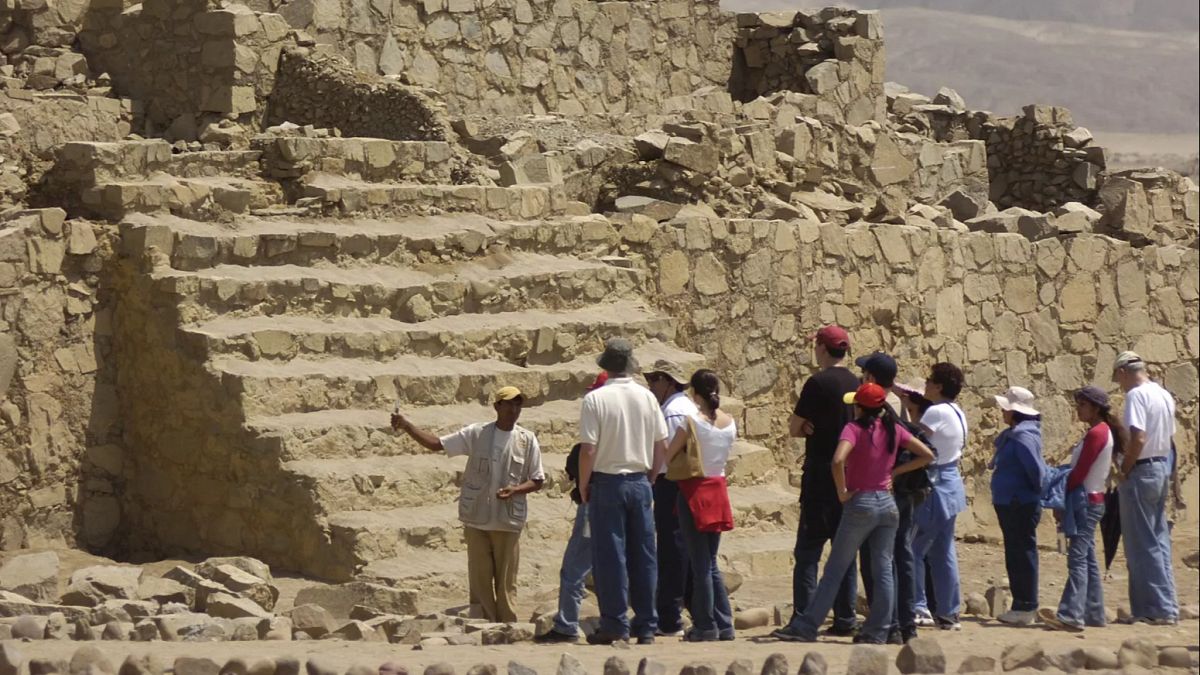

In recent days, the global landscape has been enriched by discoveries that remind us of our shared past while also unveiling contrasting visions of future prosperity. From the unveiling of a hidden city in Peru to shifting tides in global economics, this week has brought to the surface stories that inspire reflection and dialogue.
In Peru, the ancient city of Caral, shrouded in mystery for nearly 4,000 years, has been brought to light, invigorating the study of ancient civilizations. Situated strategically between two prominent pre-Columbian valleys, Caral provides rich archaeological treasures, including ceremonial artifacts that suggest vibrant interactions with neighboring cultures. The Caralian society, which flourished between 1800 and 1500 BC, offers a glimpse into a world that fostered complex community relationships, leaving behind a legacy etched in stone and earth that continues to captivate historians and archaeologists alike.
While history reveals its secrets in Peru, contemporary challenges and transformations are evident in other parts of the world. In São Paulo, Brazil, thousands gathered in peaceful demonstration against President Donald Trump’s tariff policies, expressing discontent and rallying for economic reforms such as higher taxes on the ultra-wealthy. The rally underscored a global call for more equitable economic structures that address inequalities persistent in international trade and finance.
Meanwhile, across the Atlantic, a tragic event has prompted a closer examination of road safety and accident investigations. The unfortunate passing of Diogo Jota and his brother André Silva in a fatal car crash on the A52 highway has sparked discussion surrounding the circumstances leading up to the incident. Lorry drivers and eyewitnesses have raised doubts regarding the police’s claims of speeding, fostering dialogue about the need for transparency and thoroughness in law enforcement procedures.
In China, significant economic adjustments are underway as Volkswagen and its Chinese partner SAIC announced the closure of their Nanjing production plant after 17 years of operation. This decision reflects shifting economic winds in the automotive industry, driven by changing consumer preferences and the push for sustainable practices. This plant’s closure is part of a broader strategy to realign production capacities and adapt to new market demands focusing on electric vehicles and technological innovations.
The dialogue around economic futures was further amplified at a prestigious banking meeting in Italy. Here, a lively debate between European Union officials and Italian banking leaders highlighted differing visions for financial integration and economic strategies within the continent. The proposed bank merger set the stage for discussing national versus regional financial governance, highlighting the intricate balance between local autonomy and broad economic coherence in an interconnected Europe.
As we reflect on these diverse events, from uncovering ancient wonders to navigating present-day complexities in economics and safety, we are reminded of our rich tapestry of past, present, and future. These stories prompt introspection and invite us to consider our roles in shaping a world that honors heritage, embraces innovation, and seeks harmony.
Source: {link}
